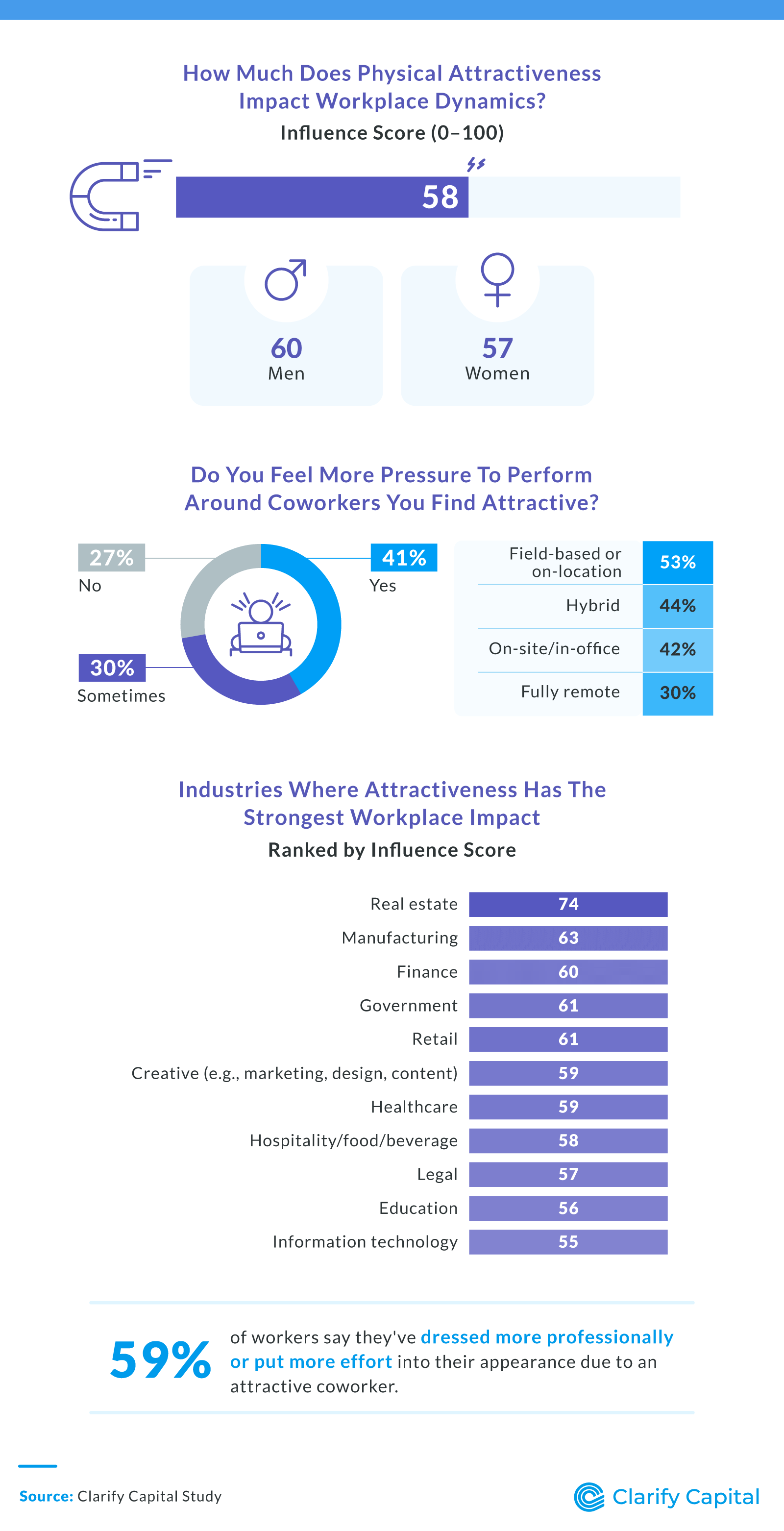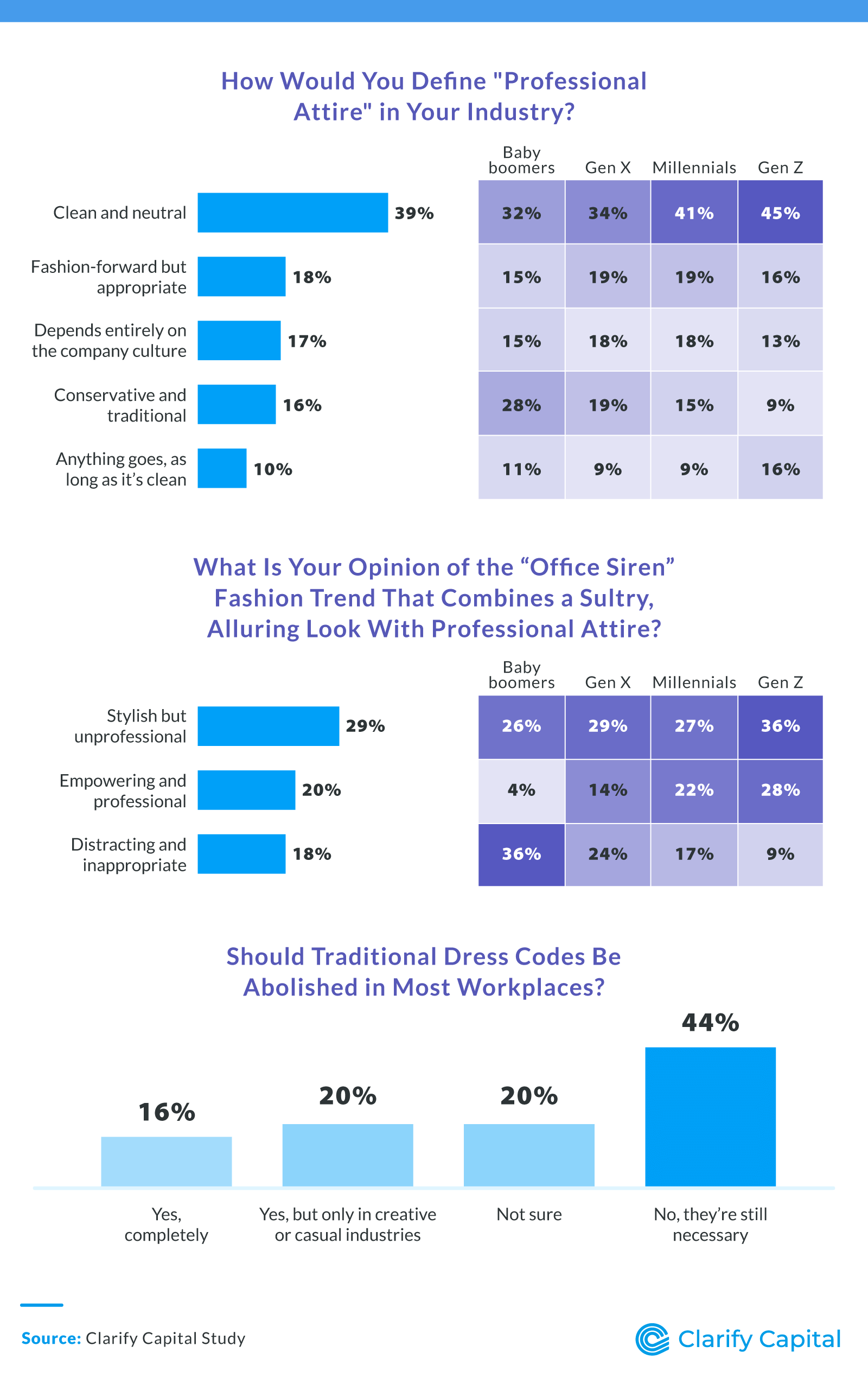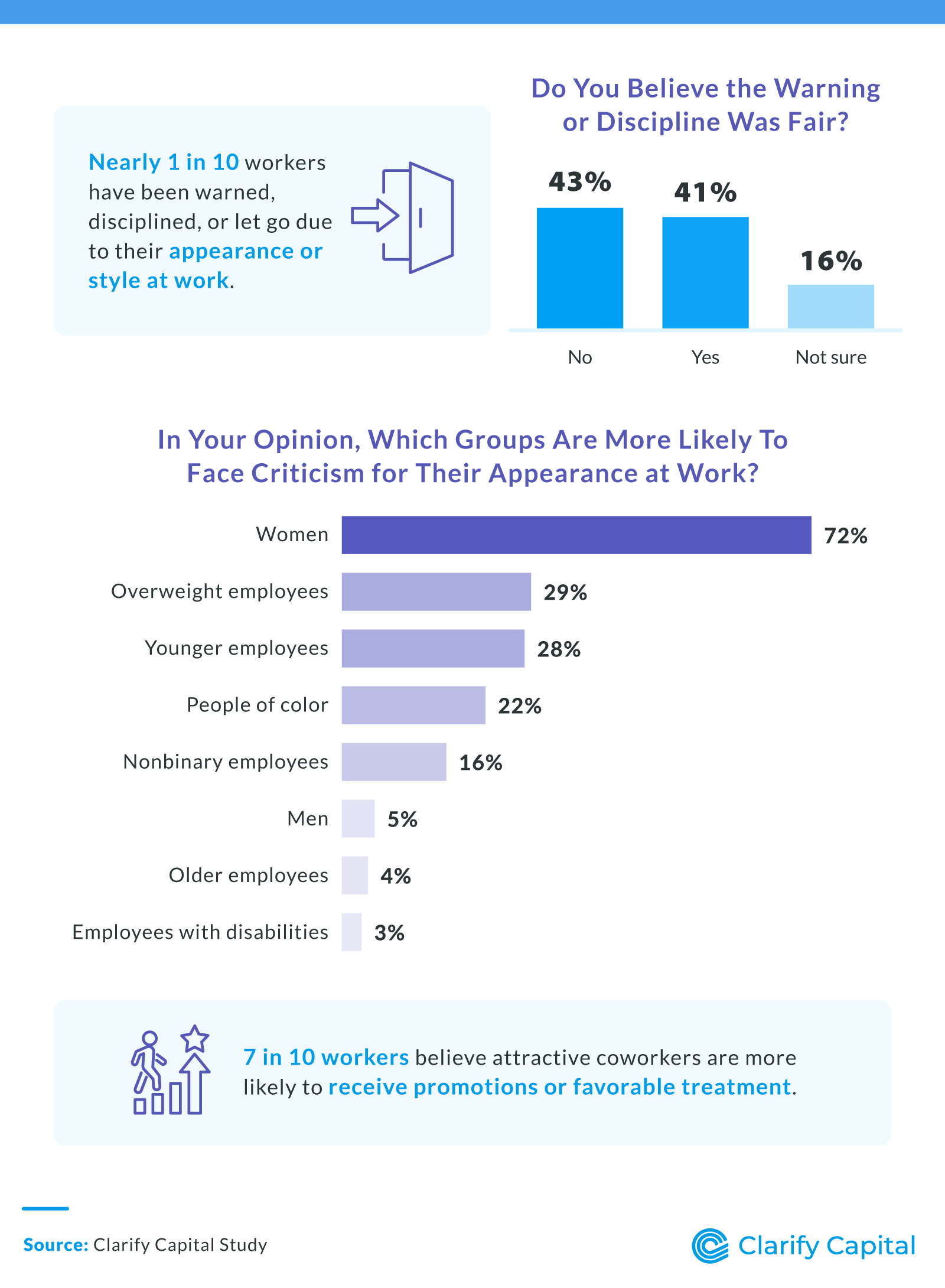Key Takeaways:
41% of workers always feel more pressure to perform around coworkers they find attractive.
Gen Z (28%) is the most likely to say the office siren aesthetic is empowering and professional.
72% of workers say women are more likely to face criticism for their appearance at work.
Performance Pressure and the Power of Presence

41% of employees say they always feel added pressure to perform around attractive coworkers, while another 30% say they sometimes do.
Real estate professionals reported the strongest link between attractiveness and workplace dynamics, rating its influence 74 out of 100.
59% of workers say they've dressed more professionally or put extra effort into their appearance because of an attractive colleague.
Dress Codes, Style Shifts, and Gen Z Influence

44% of employees still believe traditional dress codes are necessary.
Gen Z is leading a style shift, with 28% saying the "office siren" aesthetic — a bold, hyper-feminine look — is both empowering and appropriate for work.
Gen Z (16%) is the most likely to define professional attire as "anything, as long as it's clean."
Appearance Bias and Career Consequences

Nearly 1 in 10 workers have been warned, disciplined, or let go due to their appearance or style at work.
72% believe women face more scrutiny when it comes to their appearance on the job. Only 5% say men do.
70% of workers think attractive colleagues are more likely to be promoted or given special treatment.
Methodology
Clarify Capital surveyed 995 U.S. workers between the ages of 18 and 79 to understand how appearance and attraction influence the workplace. Respondents spanned four generations, with the majority identifying as millennials (53%), followed by Gen X (26%), Gen Z (16%), and baby boomers (5%). More than half of the participants were women (51%), while 48% were men, and about 1% identified as non-binary or preferred not to disclose their gender.
Surveyed individuals held a range of roles: 29% were mid-level employees, 23% were associates, 21% were managers, 18% were entry-level, 6% were senior managers, 2% were business owners, and about 2% were executives. Income levels varied widely, with most earning between $50,000 and $74,999 annually (24%). Other income groups included those making $75,000–$99,999 (18%), $35,000–$49,999 (17%), $20,000–$34,999 (14%), $100,000–$149,999 (13%), under $20,000 (10%), and over $150,000 (5%).
About Clarify Capital
Clarify Capital helps small business owners access the funding they need to grow with confidence. Whether you're launching a new venture or expanding your operations, Clarify offers no-doc business loans and fast business loans to make financing simpler and quicker. With flexible options and a focus on transparency, Clarify is a trusted partner for entrepreneurs navigating today's evolving business landscape.
Fair Use Statement
If you'd like to share or report on these findings for noncommercial use, please include a link back to Clarify Capital with proper attribution.

Michael Baynes
Co-founder, Clarify
Michael has over 15 years of experience in the business finance industry working directly with entrepreneurs. He co-founded Clarify Capital with the mission to cut through the noise in the finance industry by providing fast funding and clear answers. He holds dual degrees in Accounting and Finance from the Kelley School of Business at Indiana University. More about the Clarify team →
Related Posts





